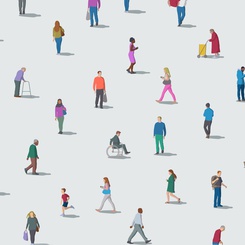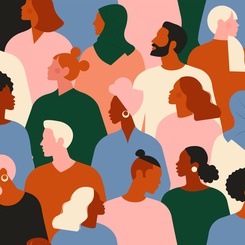With Estefania Santacreu-Vasut
Julia: Hello everyone, welcome to Be in The Know, the ESSEC Knowledge podcast. Today I’m joined by Estefania Santacreu-Vasut, a professor of economics, and Huali Wu, PhD Candidate in Economics, to talk about their research on the intersection of ableism and sexism and the impact on individuals’ careers. Thank you for joining me!
Julia: We’re all familiar with sexism - perhaps all too familiar -but can you explain the concept of ableism for those who might not have heard this talked about?
Estefania: Just as sexism captures discrimination against women, ableism captures discrimination against individuals with disabilities.
Julia: What led you to conduct this research? Can you explain how you went about the study?
Estefania: In December 2019 I participated in a hearing of the Committee on Women’s rights and gender equality in the European Parliament to discuss the EU Strategy for Gender equality. As part of the panel, Ana Pelaez Narvaez, Vice-President of the European Disability Forum spoke about issues related to gender and disability. I exchanged with her and we realized we did not know much about the intersection of gender and disability in quantitative terms. What does the data tell us ? As I came back to Cergy from Brussels, I exchanged with my PhD student, Huali WU, who was working on Chinese data to study gender inequality. Then we decided to look at the data from a disability perspective as well.
Julia: Why is the Chinese case interesting and relevant to study this question?
Huali: The Chinese context is relevant because of two reasons. First, because it is a context where inequalities in both gender and disability are severe. Second, because policies to fight sexism and ableism are less prevalent than in higher income countries allowing us to document their consequences without having to consider the policy interference.
Julia: Why is it important to look at outcomes, like career outcomes, through an intersectionality lens, and what exactly does that mean in this case?
Estefania: An intersectionality lens simply means taking into account several dimensions of identity. Empirically, it means looking at outcomes by considering several categories. It is important to do so because we need to guide policy effectively. If policies related to gender inequality and policies related to disability do not coordinate, we may miss opportunities to improve outcomes at the lowest possible cost, and we may fail to help those suffering the most, which happen to be women in a situation of disability.
Julia: Thank you for joining me today, it’s been a pleasure and given me some food for thought on how social identities can impact our lives.









